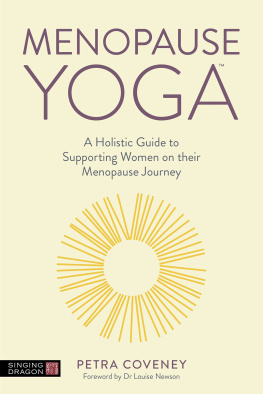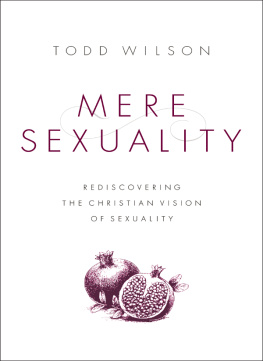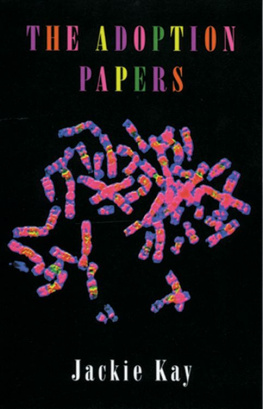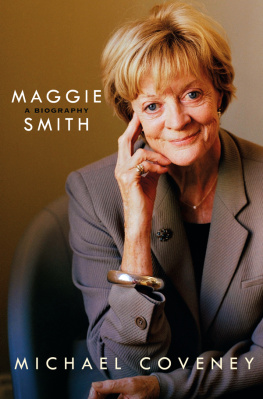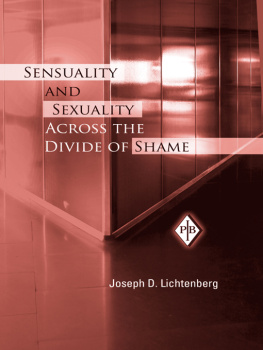ROUTLEDGE LIBRARY EDITIONS: HISTORY OF SEXUALITY
Volume 4
THE SEXUALITY PAPERS
THE SEXUALITY PAPERS
Male Sexuality and the Social Control of Women
LAL COVENEY, MARGARET JACKSON, SHEILA JEFFREYS, LESLIE KAY AND PAT MAHONY
First published in 1984 by Hutchinson
This edition first published in 2019
by Routledge
2 Park Square, Milton Park, Abingdon, Oxon OX14 4RN
and by Routledge
52 Vanderbilt Avenue, New York, NY 10017
Routledge is an imprint of the Taylor & Francis Group, an informa business
1984 Lal Coveney, Margaret Jackson, Sheila Jeffreys, Leslie Kay and Pat Mahony
All rights reserved. No part of this book may be reprinted or reproduced or utilised in any form or by any electronic, mechanical, or other means, now known or hereafter invented, including photocopying and recording, or in any information storage or retrieval system, without permission in writing from the publishers.
Trademark notice: Product or corporate names may be trademarks or registered trademarks, and are used only for identification and explanation without intent to infringe.
British Library Cataloguing in Publication Data
A catalogue record for this book is available from the British Library
ISBN: 978-0-367-03102-2 (Set)
ISBN: 978-0-429-05663-5 (Set) (ebk)
ISBN: 978-0-367-17429-3 (Volume 4) (hbk)
ISBN: 978-0-429-05672-7 (Volume 4) (ebk)
Publishers Note
The publisher has gone to great lengths to ensure the quality of this reprint but points out that some imperfections in the original copies may be apparent.
Disclaimer
The publisher has made every effort to trace copyright holders and would welcome correspondence from those they have been unable to trace.
The Sexuality
Papers
Male sexuality and the social control of women
Lal Coveney, Margaret Jackson, Sheila Jeffreys, Leslie Kay and Pat Mahony
Hutchinson
in association with
The Explorations in Feminism Collective
London Melbourne Sydney Auckland Johannesburg
Hutchinson & Co. (Publishers) Ltd
An imprint of the Hutchinson Publishing Group
1721 Conway Street, London W1P 6JD
and 51 Washington Street, Dover, New Hampshire 03820, USA
Hutchinson Publishing Group (Australia) Pty Ltd
PO Box 496, 1622 Church Street, Hawthorne, Melbourne, Victoria 3122
Hutchinson Group (NZ) Ltd
3234 View Road, PO Box 40086, Glenfield, Auckland 10
Hutchinson Group (SA) (Pty) Ltd
PO Box 337, Bergvlei 2012, South Africa
First published 1984
Lal Coveney, Margaret Jackson, Sheila Jeffreys, Leslie Kay and Pat Mahony 1984
Set in 11/12 Plantin, by Activity Limited, Salisbury, Wilts
Printed and bound in Great Britain by
Anchor Brendon Ltd,
Tiptree, Essex
British Library Cataloguing in Publication Data
The Sexuality papers.(Explorations in feminism)
1. SexHistory
I. Coveney, Lal II. Series
306.7094 HQ23
Library of Congress Cataloging in Publication Data
The sexuality papers: male sexuality and the social control of women.
Bibliography: P.
1. Mensexual behavior. 2. Dominance (Psychology) 3. Sex discrimination against women. 4. Womensexual behavior. 5. Sexologistscase studies. 6. Social control. I. Coveney, Lal.
HQ28.S49 1984 306.7088041 84-12867
ISBN 0 09 156971 0
Contents
Lal Coveney is a member of the Revolutionary and Radical Feminist Newsletter Collective. She teaches in a secondary school and has been active in the Womens Liberation Movement since 1969.
Margaret Jackson is a lesbian and a revolutionary feminist who has been involved in various Womens Liberation groups and campaigns, especially Women Against Violence Against Women. Her particular interest is in the relationship between heterosexuality and womens oppression. She teaches at Goldsmiths College, London.
Sheila Jeffreys is a lesbian and a revolutionary feminist who has been active in the Womens Liberation Movement campaigns against male violence, particularly Women Against Violence Against Women. She teaches adult education courses in womens studies and the history and politics of gay liberation.
Leslie Kay is an apprentice joiner and lives in Leeds. She has been active or at least semi-comatose in the Womens Liberation Movement for ten years and still thinks an end to male supremacy is a jolly good idea.
Pat Mahony lives in South-East London. She tries to train teachers at Goldsmiths College and her major interest over the last few years has been in the effect on girls of mixed sex schooling. She has two daughters.
The origins of our work
We are all revolutionary feminists. We met in the Patriarchy Study Group (PSG), which started in 1978 as a support group for feminists who were involved in research and who wanted to develop a theory of patriarchy. The group underwent a series of changes in membership and focus and, as we delved deeper into the question of precisely how patriarchy worked to oppress women, we began to use the technique of brainstorming around small and puzzling examples of male power in action, such as gay male behaviour, male celibacy, and coprophilia.* We found ourselves continually returning to the centrality of male sexuality as an issue, its forms and function in the social control of women. As our discussions became more and more intensive and exciting we began to meet more frequently, and for a period of about eighteen months we met every six weeks for a weekend in different parts of the country. We discussed our experiences in feminist campaigns, particularly those against male violence, our research interests, and our personal experience. Later, we began to investigate what men themselves had written on the subject of male sexuality, and a small group of us from the PSG went to talk to some gay men about their ideas and sexual practices.
Sheilas paper came out of her research at Bradford University, which began with the issue of the sexual abuse of children and developed into an historical analysis of womens campaigns around sexuality. This contributed to our discussions and was in turn refined as a result of the clarification of our theory. Margaret developed her research interests as a result of the discussions in the group, and our recognition of the need to examine the role of sexologists in the construction of male sexuality.
Pat, Leslie and Lals work emerged from the difficulty we had in understanding the phenomenon of swinging or group sex: why should some men be so keen for their wives and girlfriends to have sex with other men? Someone suggested looking at Forum magazine, and what was uncovered was astounding. It confirmed the links we had been making between various aspects of male sexuality and the way it functioned to control women. We had reached the conclusion in the PSG that many features of male sexuality which were particularly damaging to women, such as the association between sex and violence, were being normalized by the sexologists; looking at




